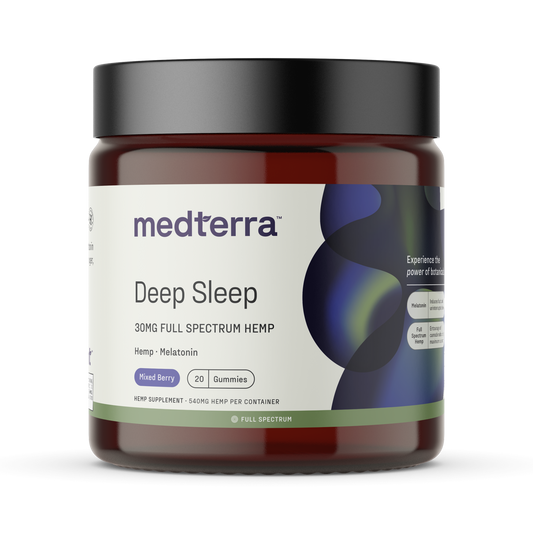If you’ve taken a stroll through your local health store or done some online shopping lately, then it’s likely you’ve come across a CBD product. Over the past few years, CBD has begun to pop up in everything from nail polish to pillowcases in a variety of different forms. CBD isolate, broad spectrum CBD, and full spectrum CBD can contain a variety of different cannabinoids in a range of different concentrations, which can make finding the right CBD difficult.
In an industry with sparse government regulations and under-developed approval processes, unscrupulous companies are now taking liberties with both the claims they make and the quality of the products they deliver. How does a conscious consumer wade through the nonsense to find the right product? The key is knowing what to look for.
What is CBD?
CBD is the abbreviation for cannabidiol, one of the main cannabinoids present in marijuana and hemp. The CBD available for consumption comes from the hemp plant, a variety of cannabis that contains less than 0.3% THC. Research is still ongoing, but CBD has been used to help with various conditions, including: relief from physical discomfort, stress, nausea, lack of appetite, and insomnia.
CBD products vary in both the type of CBD and the potency of the active CBD in the product. Companies are responsible for labeling products with the amount of CBD that they contain, but one study that analyzed 84 CBD products sold online showed that about 43% had a higher concentration than stated on the label, and about 26% had a lower concentration.
What types of CBD are there?
There are three main types of CBD available on the market today: isolate, broad spectrum, and full spectrum. The difference between the three lies in the amount of other cannabinoids that they contain. These can include the psychoactive component in cannabis, THC; minor cannabinoids like CBN, CBD, CBG, CBN, CBC, CBDV; terpenes; and flavonoids. Early research suggests that these other cannabinoids may work in concert with CBD, allowing it to better bind to the body’s endocannabinoid receptors through something known as the entourage effect.
- CBD isolate is the purest form of CBD. Like the name implies, CBD is isolated during the extraction process and is incorporated into products without any of the other cannabinoids the hemp plant contains.
- If you are looking for the additional benefits that a full range of cannabinoids may provide, but don’t want to consume any THC, then broad spectrum CBD is a great option. It contains everything but the THC, including the terpenes and minor cannabinoids. These products may be labeled as “0% THC.”
- If you’re open to consuming some THC, then full spectrum extracts may be what you’re looking for. They use the full scope of the cannabis plant’s active ingredients, including small amounts of THC - though usually not enough to make you feel “high.”
Full Spectrum has THC?
Yes – it contains THC. Full spectrum CBD contains the full spectrum of cannabinoids that the hemp plant contains, including THC. However, unlike medicinal or recreational marijuana products, full spectrum CBD isn’t designed to get you high.
THC is included, but only at small doses. The amount can range from product to product, with some being as little as 0.1%, and others as high as 2%. You won’t get high like you would from recreational or medical marijuana if you take the recommended dose, but if you’ve been using an isolate or broad spectrum CBD product, and aren’t seeing the results that you’re looking for, full spectrum CBD might be right for you.
How do I find high quality CBD?
Finding high quality CBD doesn’t have to be a pain. When you’re considering a CBD product, there are four things that you want to look for:
- Transparent, straightforward labeling - If a company can’t be bothered to label their products in a clear and readily understandable fashion, then you shouldn’t bother trusting them. Look for labels that include details on potency, dosage, suggested use, and the type of CBD included in the product.
- Organic ingredients that you can recognize - Don’t get caught up in confusing labeling and assume that a product is healthy. A simple ingredients list is often best, but there are a few standard ingredients that may be unfamiliar to you: carrier oils like grapeseed, MCT, and olive oils; flavors and colors; and other active ingredients like melatonin, caffeine, and adaptogens.
- Home grown, contaminant free hemp - Avoid products with uncertain origins or pesticide usage by choosing ones that are certified by the U.S. Hemp Authority, grown under the guidelines of their state’s Department of Agriculture, and use GMP-certified (Good Manufacturing Practice) suppliers and distributors.
- Certificates of analysis - Rather than putting your trust in a label, look for companies that use independent, third-party lab testing to verify that their products are held to the highest standards of purity and safety. Trustworthy companies will have up to date Certificates of Analysis for you to review.
How do I get the most out of my CBD?
When it comes to CBD, it’s important to experiment to get the right dosing that works for you. That doesn’t mean going for the highest dosage you can find. What’s most important is making sure that you’re getting the full range of benefits the hemp plant has to offer.
You may want to start with either an isolate CBD or broad spectrum CBD product first to test out the effects. If you’re looking for a little more, then you may want to turn to a high quality full spectrum CBD extract. The full range of cannabinoids, terpenes, and flavonoids may help you get the most out of your CBD, to ensure that you can get the biggest bang for your buck.
Sources:
Healthine. CBD vs. THC: What’s the difference?
American Medical Association. Labeling Accuracy of Cannabidiol Extracts Sold Online.
Healthline. The Entourage Effect: How CBD and THC Work Together.















